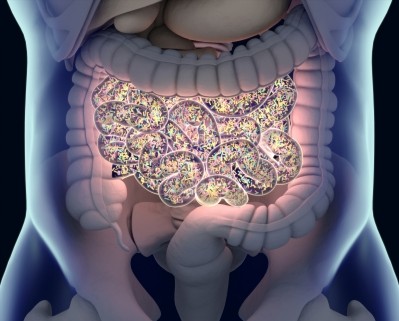Survey reveals 'urgent need' to improve nutrition advice for cancer survivors

In the UK, the National Institute for Clinical Excellence (NICE) guidelines recommend that after CRC treatment, patients should be offered comprehensive advice on managing the effects of treatment on their bowel function, including information on diet as nutritional education can be effective in improving the overall survival, quality of life and nutrition of CRC survivors. This is especially important for CRC survivors as their treatment may include partial resection or temporary or permanent stoma.
The present study aimed to use a previously developed tool, The NIHR patient Experience Survey, to investigate the quality of dietary advice in patients living with and beyond CRC in the UK.
A team of researchers from the University of Sheffield assessed 75 colorectal cancer survivors recruited through social media and bowel cancer support groups in the UK. The survey consisted of open‐ended and closed questions that aimed to explore the nutritional needs, nutritional advice given and other sources of information accessed by colorectal cancer survivors.
More than two-thirds (69 per cent) of the patients who took part in the national survey said they did not receive any nutritional advice or support from their healthcare team throughout diagnosis, treatment and post-treatment.
The most common reported nutritional problems were diarrhoea (73.3%), uncertainty as to what to eat (70.7%), appetite loss (61.3%), and changes to taste and smell (58.7%). The free‐text responses suggested that participants experienced adverse reactions to foods that were previously enjoyed and tolerated but that now caused ‘bowel problems’. They emphasised the physical issues with their bowel: stomach cramps, lack of control and chronic diarrhoea.
Many cancer survivors said they had sought nutritional advice online from a variety of sources - mainly charity websites such as Bowel Cancer UK and Macmillan Cancer Support. Many also indicated a desire for individualised advice relating to their specific nutritional problems and several expressed that they would like to have access to dietitians.
The report concludes: "Less than one‐third (30.7%) of CRC patients received nutritional advice from a healthcare professional. Where received, this advice does not meet patient expectation, and can be generic and unsuited to the individual’s needs; CRC patients would like to have nutritional advice and support given by healthcare professionals, specifically dietitians.
"There is an urgent need to improve clinical practice to ensure colorectal patients receive nutritional advice that is both consistent between healthcare professionals and personalised throughout each stage of diagnosis, treatment and post‐treatment."
The researchers found that commonly received advice by participants was around the consumption or avoidance of specific foods as a result of treatment‐associated digestive issues.
The report states that one respondent said: "I am unable to eat fruit or vegetables – after surgery I was informed that my bowel would no longer be able to cope with these foods but would need to eat things which can be easily digested such as chocolate."
Dr Bernard Corfe, lead author of the study from the University of Sheffield, said: "Patients with bowel, colon and rectal cancer do not feel that they are getting the nutritional support and advice they need.
"Many colorectal cancer survivors have to adapt to a new way of life after their treatment - especially those who are fitted with a stoma bag. It is so important that they receive nutritional guidance from their health care team, both during and after treatment, rather than having to search for the information online which may lead to patients accessing unverified or even unreputable sources.
"It is vital that patients feel supported to overcome their specific nutritional difficulties and the advice is personalised for them and their lifestyle. For example a young patient living with a stoma is going to have very different questions and support needs to an older patient being treated for advanced bowel cancer."
Researchers now hope to work with health care professionals in order to help better support patients to overcome nutritional difficulties. The Sheffield team have begun collaborating on an app which could help to give patients individual and approved nutritional advice without the need for extra resources and reducing pressure on health care professionals.
Source: Journal of Human Nutrition and Dietetics
Corfe. B. M., et al
"Investigating the nutritional advice and support given to colorectal cancer survivors in the UK: is it fit for purpose and does it address their needs?"















